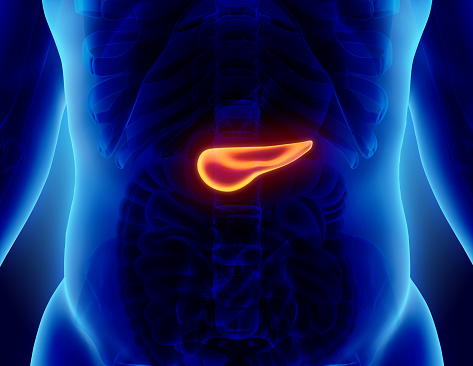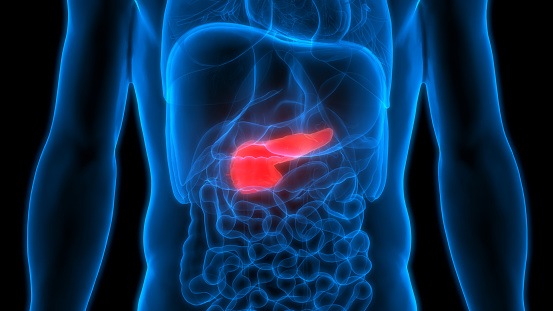
Inflammation resulting from use of commonly prescribed medications does not increase risk of pancreatic cancer, according to a study published in Cancer Epidemiology.
Chronic pancreatitis is a known risk factor for pancreatic cancer. Some studies report that acute pancreatitis is also associated with increased risk of cancer. Certain medications, such as diuretics, estrogens, Angiotensin Converting Enzyme (ACE) inhibitors, and others, can cause inflammation that may lead to the development of acute drug-induced pancreatitis (DIP).
A research team from Queen’s University Belfast in Northern Ireland sought to determine any associations between the use of these medications and development of pancreatic cancer. Data on cases of pancreatic cancer diagnosed between 1999 and 2011 were collected from general practice records in Scotland. A total of 1,069 cases were identified and matched with up to 5 controls based on age, gender, and other factors. More than 4,000 controls were utilized. The investigators also identified thirteen medicines with strong evidence for DIP that were used by more than two percent of controls. The primary endpoint was associations between medicine use and pancreatic cancer after adjustment for comorbidities.
Overall, most medicines with evidence of DIP risk were not associated with an increased rate of pancreatic cancer development. Two medicines were found to be significantly associated with cancer risk: the antibiotic metronidazole (adjusted odds ratio [OR], 1.69; 95% confidence interval [CI], 1.18-2.41; P=0.004) and the antihistamine and antacid ranitidine (OR 1.37; 95% CI, 1.10-1.70; P=0.005). However, neither of these drugs showed evidence of an exposure-response relationship to cancer development. There was also evidence that patients with two or more prescriptions for the antibiotic erythromycin had increased risk of pancreatic cancer (OR, 1.40; 95% CI, 1.00-1.97; P=0.049).
In conclusion, the researchers wrote, “Many of the medicines investigated are prescribed long-term for common medical conditions. Our study suggests that any inflammation of the pancreas which arises from taking these medicines does not appear to be associated with an increased risk of pancreatic cancer. These findings should provide some reassurance to patients who take these medicines for other conditions.”







 © 2025 Mashup Media, LLC, a Formedics Property. All Rights Reserved.
© 2025 Mashup Media, LLC, a Formedics Property. All Rights Reserved.